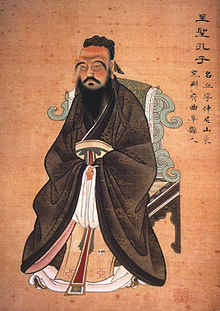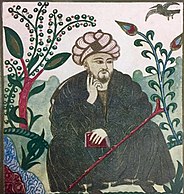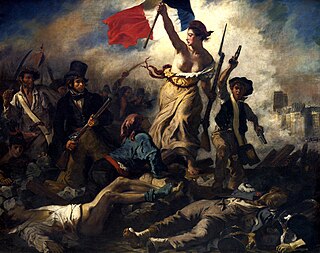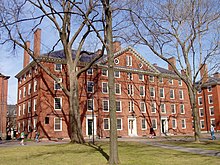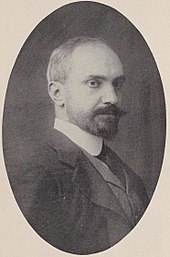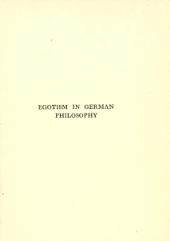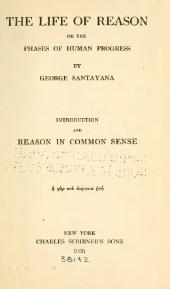Political philosophy, also known as political theory, is the study of topics such as politics, liberty, justice, property, rights, law, and the enforcement of laws by authority: what they are, if they are needed, what makes a government legitimate,
what rights and freedoms it should protect, what form it should take,
what the law is, and what duties citizens owe to a legitimate
government, if any, and when it may be legitimately overthrown, if ever.
Political theory also engages questions of a broader scope, tackling the political nature of phenomena and categories such as identity, culture, sexuality, race, wealth, human-nonhuman relations, ecology, religion, and more.
Political philosophy is a branch of philosophy, but it has also been a major part of political science,
within which a strong focus has historically been placed on both the
history of political thought and contemporary political theory (from normative political theory to various critical approaches).
In the Oxford Handbook in Political Theory (2006), the
field is described as: "[...] an interdisciplinary endeavor whose center
of gravity lies at the humanities end of the happily still
undisciplined discipline of political science ... For a long time, the
challenge for the identity of political theory has been how to position
itself productively in three sorts of location: in relation to the
academic disciplines of political science, history, and philosophy;
between the world of politics and the more abstract, ruminative register
of theory; between canonical political theory and the newer resources
(such as feminist and critical theory, discourse analysis, film and film theory, popular and political culture, mass media studies, neuroscience, environmental studies, behavioral science, and economics) on which political theorists increasingly draw."
History
Ancient traditions
Ancient India
Indian political philosophy
in ancient times demarcated a clear distinction between (1) nation and
state (2) religion and state. The constitutions of Hindu states evolved
over time and were based on political and legal treatises and prevalent
social institutions. The institutions of state were broadly divided
into governance, administration, defense, law and order. Mantranga,
the principal governing body of these states, consisted of the King,
Prime Minister, Commander in chief of army, Chief Priest of the King.
The Prime Minister headed the committee of ministers along with head of
executive (Maha Amatya).
Chanakya was a 4th-century BC Indian political philosopher. The Arthashastra
provides an account of the science of politics for a wise ruler,
policies for foreign affairs and wars, the system of a spy state and
surveillance and economic stability of the state.
Chanakya quotes several authorities including Bruhaspati, Ushanas,
Prachetasa Manu, Parasara, and Ambi, and described himself as a
descendant of a lineage of political philosophers, with his father
Chanaka being his immediate predecessor. Another influential extant Indian treatise on political philosophy is the Sukra Neeti. An example of a code of law in ancient India is the Manusmṛti or Laws of Manu.
Ancient China
Portrait of Confucius, c. 1770
Chinese political philosophy dates back to the Spring and Autumn period,
specifically with Confucius in the 6th century BC. Chinese political
philosophy was developed as a response to the social and political
breakdown of the country characteristic of the Spring and Autumn period
and the Warring States period. The major philosophies during the period, Confucianism, Legalism, Mohism, Agrarianism and Taoism, each had a political aspect to their philosophical schools. Philosophers such as Confucius, Mencius, and Mozi,
focused on political unity and political stability as the basis of
their political philosophies. Confucianism advocated a hierarchical, meritocratic government based on empathy, loyalty, and interpersonal relationships. Legalism advocated a highly authoritarian government based on draconian punishments and laws. Mohism advocated a communal, decentralized government centered on frugality and ascetism. The Agrarians advocated a peasant utopian communalism and egalitarianism. Taoism advocated a proto-anarchism. Legalism was the dominant political philosophy of the Qin Dynasty, but was replaced by State Confucianism in the Han Dynasty. Prior to China's adoption of communism, State Confucianism remained the dominant political philosophy of China up to the 20th century.
Ancient Greece
Western political philosophy originates in the philosophy of ancient Greece, where political philosophy dates back to at least Plato.
Ancient Greece was dominated by city-states, which experimented with
various forms of political organization, grouped by Plato into five
categories of descending stability and morality: monarchy, timocracy, oligarchy, democracy and tyranny. One of the first, extremely important classical works of political philosophy is Plato's Republic, which was followed by Aristotle's Nicomachean Ethics and Politics. Roman political philosophy was influenced by the Stoics and the Roman statesman Cicero.
Medieval Christianity
Saint Augustine
The early Christian philosophy of Augustine of Hippo was heavily influenced by Plato. A key change brought about by Christian thought was the moderation of the Stoicism and theory of justice of the Roman world, as well emphasis on the role of the state in applying mercy as a moral example. Augustine also preached that one was not a member of his or her city, but was either a citizen of the City of God (Civitas Dei) or the City of Man (Civitas Terrena). Augustine's City of God
is an influential work of this period that attacked the thesis, held by
many Christian Romans, that the Christian view could be realized on Earth.
St. Thomas Aquinas
Thomas Aquinas meticulously dealt with the varieties of philosophy of law. According to Aquinas, there are four kinds of law:
- Eternal law ("the divine government of everything")
- Divine positive law (having been "posited" by God; external to human nature)
- Natural law (the right way of living discoverable by natural reason; what cannot-not be known; internal to human nature)
- Human law (what we commonly call "law"—including customary law; the law of the Communitas Perfecta)
Aquinas never discusses the nature or categorization of canon law. There is scholarly debate surrounding the place of canon law within the Thomistic jurisprudential framework.
Aquinas was an incredibly influential thinker in the Natural Law tradition.
Islamic Political Evolution
Mutazilite vs. Asharite
The rise of Islam, based on both the Qur'an and Muhammad strongly altered the power balances and perceptions of origin of power in the Mediterranean region. Early Islamic philosophy emphasized an inexorable link between science and religion, and the process of ijtihad to find truth—in effect all philosophy was "political" as it had real implications for governance. This view was challenged by the "rationalist" Mutazilite philosophers, who held a more Hellenic
view, reason above revelation, and as such are known to modern scholars
as the first speculative theologians of Islam; they were supported by a
secular aristocracy who sought freedom of action independent of the Caliphate. By the late ancient period, however, the "traditionalist" Asharite view of Islam had in general triumphed. According to the Asharites, reason must be subordinate to the Quran and the Sunna.
Islamic political philosophy, was, indeed, rooted in the very sources of Islam—i.e., the Qur'an and the Sunnah,
the words and practices of Muhammad—thus making it essentially
theocratic. However, in Western thought, it is generally supposed that
it was a specific area peculiar merely to the great philosophers of
Islam: al-Kindi (Alkindus), al-Farabi (Abunaser), İbn Sina (Avicenna), Ibn Bajjah (Avempace) and Ibn Rushd (Averroes). The political conceptions of Islam such as kudrah (power), sultan, ummah, cemaa (obligation)-and even the "core" terms of the Qur'an—i.e., ibadah (worship), din (religion), rab (master) and ilah
(deity)—is taken as the basis of an analysis. Hence, not only the ideas
of the Muslim political philosophers but also many other jurists and ulama posed political ideas and theories. For example, the ideas of the Khawarij in the very early years of Islamic history on Khilafa and Ummah, or that of Shia Islam on the concept of Imamah are considered proofs of political thought. The clashes between the Ehl-i Sunna and Shia in the 7th and 8th centuries had a genuine political character. Political thought was not purely rooted in theism, however. Aristotleanism flourished as the Islamic Golden Age saw rise to a continuation of the peripatetic philosophers who implemented the ideas of Aristotle
in the context of the Islamic world. Abunaser, Avicenna and Ibn Rushd
where part of this philosophical school who claimed that human reason
surpassed mere coincidence and revelation. They believed, for example,
that natural phenomena occur because of certain rules (made by god), not
because god interfered directly (unlike Al-Ghazali and his followers).
Other notable political philosophers of the time include Nizam al-Mulk, a Persian scholar and vizier of the Seljuq Empire who composed the Siyasatnama,
or the "Book of Government" in English. In it, he details the role of
the state in terms of political affairs (i.e. how to deal with political
opponents without ruining the government's image), as well as its duty
to protect the poor and reward the worthy. In his other work, he
explains how the state should deal with other issues such as supplying
jobs to immigrants like the Turkmens who were coming from the north (present day southern Russia, Kazakhstan, Turkmenistan and Uzbekistan).
Ibn Khaldun
The 14th-century Arab scholar Ibn Khaldun is considered one of the greatest political theorists. The British philosopher-anthropologist Ernest Gellner considered Ibn Khaldun's definition of government,
"...an institution which prevents injustice other than such as it
commits itself," the best in the history of political theory. For Ibn
Khaldun, government should be restrained to a minimum for as a necessary
evil, it is the constraint of men by other men.
Medieval Europe
Medieval political philosophy in Europe was heavily influenced by Christian thinking. It had much in common with the Mutazilite Islamic thinking in that the Roman Catholics thought subordinating philosophy to theology
did not subject reason to revelation but in the case of contradictions,
subordinated reason to faith as the Asharite of Islam. The Scholastics
by combining the philosophy of Aristotle with the Christianity of St.
Augustine emphasized the potential harmony inherent in reason and
revelation. Perhaps the most influential political philosopher of medieval Europe was St. Thomas Aquinas who helped reintroduce Aristotle's works, which had only been transmitted to Catholic Europe through Muslim Spain, along with the commentaries of Averroes. Aquinas's use of them set the agenda, for scholastic political philosophy dominated European thought for centuries even unto the Renaissance.
Some medieval political philosophers, such as Aquinas in his Summa Theologica, developed the idea that a king who is a tyrant is no king at all and could be overthrown. Others, like Nicole Oresme in his Livre de Politiques, categorically denied this right to overthrow an unjust ruler.
The Magna Carta,
viewed by many as a cornerstone of Anglo-American political liberty,
explicitly proposes the right to revolt against the ruler for justice's
sake. Other documents similar to Magna Carta are found in other European
countries such as Spain and Hungary.
European Renaissance
During the Renaissance
secular political philosophy began to emerge after about a century of
theological political thought in Europe. While the Middle Ages did see
secular politics in practice under the rule of the Holy Roman Empire, the academic field was wholly scholastic and therefore Christian in nature.
Niccolò Machiavelli
One of the most influential works during this burgeoning period was Niccolò Machiavelli's The Prince, written between 1511–12 and published in 1532, after Machiavelli's death. That work, as well as The Discourses, a rigorous analysis of classical antiquity, did much to influence modern political thought in the West. A minority (including Jean-Jacques Rousseau)
interpreted The Prince as a satire meant to be given to the Medici
after their recapture of Florence and their subsequent expulsion of
Machiavelli from Florence.
Though the work was written for the di Medici family in order to
perhaps influence them to free him from exile, Machiavelli supported the
Republic of Florence rather than the oligarchy of the di Medici family. At any rate, Machiavelli presents a pragmatic and somewhat consequentialist
view of politics, whereby good and evil are mere means used to bring
about an end—i.e., the acquisition and maintenance of absolute power. Thomas Hobbes, well known for his theory of the social contract, goes on to expand this view at the start of the 17th century during the English Renaissance.
Although neither Machiavelli nor Hobbes believed in the divine right of
kings, they both believed in the inherent selfishness of the
individual. It was necessarily this belief that led them to adopt a
strong central power as the only means of preventing the disintegration
of the social order.
European Enlightenment
Eugène Delacroix's Liberty Leading the People (1830, Louvre), a painting created at a time when old and modern political philosophies came into violent conflict.
During the Enlightenment
period, new theories emerged about what the human was and is and about
the definition of reality and the way it was perceived, along with the
discovery of other societies in the Americas, and the changing needs of
political societies (especially in the wake of the English Civil War, the American Revolution, the French Revolution), and the Haitian Revolution. These new theories led to new questions and insights by such thinkers as Thomas Hobbes, John Locke, Montesquieu and Jean-Jacques Rousseau.
These theorists were driven by two basic questions: one, by what
right or need do people form states; and two, what the best form for a
state could be. These fundamental questions involved a conceptual
distinction between the concepts of "state" and "government." It was
decided that "state" would refer to a set of enduring institutions
through which power would be distributed and its use justified. The term
"government" would refer to a specific group of people who occupied the
institutions of the state, and create the laws and ordinances by which
the people, themselves included, would be bound. This conceptual
distinction continues to operate in political science, although some political scientists, philosophers, historians and cultural anthropologists
have argued that most political action in any given society occurs
outside of its state, and that there are societies that are not
organized into states that nevertheless must be considered in political
terms. As long as the concept of natural order was not introduced, the social sciences could not evolve independently of theistic
thinking. Since the cultural revolution of the 17th century in England,
which spread to France and the rest of Europe, society has been
considered subject to natural laws akin to the physical world.
Political and economic relations were drastically influenced by these theories as the concept of the guild was subordinated to the theory of free trade, and Roman Catholic dominance of theology was increasingly challenged by Protestant churches subordinate to each nation-state,
which also (in a fashion the Roman Catholic Church often decried
angrily) preached in the vulgar or native language of each region.
However, the enlightenment was an outright attack on religion,
particularly Christianity. The most outspoken critic of the church in
France was François Marie Arouet de Voltaire, a representative figure of the enlightenment. After Voltaire, religion would never be the same again in France.
In the Ottoman Empire,
these ideological reforms did not take place and these views did not
integrate into common thought until much later. As well, there was no
spread of this doctrine within the New World and the advanced civilizations of the Aztec, Maya, Inca, Mohican, Delaware, Huron and especially the Iroquois. The Iroquois
philosophy in particular gave much to Christian thought of the time and
in many cases actually inspired some of the institutions adopted in the
United States: for example, Benjamin Franklin was a great admirer of some of the methods of the Iroquois Confederacy, and much of early American literature emphasized the political philosophy of the natives.
John Locke
John Locke in particular exemplified this new age of political theory with his work Two Treatises of Government.
In it Locke proposes a state of nature theory that directly complements
his conception of how political development occurs and how it can be
founded through contractual obligation. Locke stood to refute Sir Robert Filmer's
paternally founded political theory in favor of a natural system based
on nature in a particular given system. The theory of the divine right of kings
became a passing fancy, exposed to the type of ridicule with which John
Locke treated it. Unlike Machiavelli and Hobbes but like Aquinas, Locke
would accept Aristotle's dictum that man seeks to be happy in a state
of social harmony as a social animal. Unlike Aquinas's preponderant view
on the salvation of the soul from original sin, Locke believes man's mind comes into this world as tabula rasa.
For Locke, knowledge is neither innate, revealed nor based on authority
but subject to uncertainty tempered by reason, tolerance and
moderation. According to Locke, an absolute ruler as proposed by Hobbes
is unnecessary, for natural law is based on reason and seeking peace and
survival for man.
Industrialization and the Modern Era
The Marxist critique of capitalism—developed with Friedrich Engels—was, alongside liberalism and fascism, one of the defining ideological movements of the twentieth century. The industrial revolution produced a parallel revolution in political thought. Urbanization and capitalism greatly reshaped society. During this same period, the socialist movement began to form. In the mid-19th century, Marxism was developed, and socialism
in general gained increasing popular support, mostly from the urban
working class. Without breaking entirely from the past, Marx established
principles that would be used by future revolutionaries of the 20th
century namely Vladimir Lenin, Mao Zedong, Ho Chi Minh, and Fidel Castro. Though Hegel's philosophy of history is similar to Immanuel Kant's, and Karl Marx's
theory of revolution towards the common good is partly based on Kant's
view of history—Marx declared that he was turning Hegel's dialectic,
which was "standing on its head", "the right side up again". Unlike Marx who believed in historical materialism, Hegel believed in the Phenomenology of Spirit. By the late 19th century, socialism and trade unions were established members of the political landscape. In addition, the various branches of anarchism, with thinkers such as Mikhail Bakunin, Pierre-Joseph Proudhon or Peter Kropotkin, and syndicalism also gained some prominence. In the Anglo-American world, anti-imperialism and pluralism began gaining currency at the turn of the 20th century.
World War I was a watershed event in human history, changing views of governments and politics. The Russian Revolution of 1917 (and similar, albeit less successful, revolutions in many other European countries) brought communism—and in particular the political theory of Leninism, but also on a smaller level Luxemburgism (gradually)—on the world stage. At the same time, social democratic parties won elections and formed governments for the first time, often as a result of the introduction of universal suffrage.
Contemporary
From the end of World War II until 1971, when John Rawls published A Theory of Justice,
political philosophy declined in the Anglo-American academic world, as
analytic philosophers expressed skepticism about the possibility that
normative judgments had cognitive content, and political science turned
toward statistical methods and behavioralism. In continental Europe, on the other hand, the postwar decades saw a huge blossoming of political philosophy, with Marxism dominating the field. This was the time of Jean-Paul Sartre and Louis Althusser, and the victories of Mao Zedong in China and Fidel Castro in Cuba, as well as the events of May 1968 led to increased interest in revolutionary ideology, especially by the New Left. A number of continental European émigrés to Britain and the United States—including Karl Popper, Friedrich Hayek, Leo Strauss, Hannah Arendt, Isaiah Berlin, Eric Voegelin and Judith Shklar—encouraged
continued study in political philosophy in the Anglo-American world,
but in the 1950s and 1960s they and their students remained at odds with
the analytic establishment.
Communism remained an important focus especially during the 1950s and 1960s. Colonialism and racism were important issues that arose. In general, there was a marked trend towards a pragmatic
approach to political issues, rather than a philosophical one. Much
academic debate regarded one or both of two pragmatic topics: how (or
whether) to apply utilitarianism to problems of political policy, or how (or whether) to apply economic models (such as rational choice theory) to political issues. The rise of feminism, LGBT social movements and the end of colonial rule and of the political exclusion of such minorities as African Americans and sexual minorities in the developed world has led to feminist, postcolonial, and multicultural thought becoming significant. This led to a challenge to the social contract by philosophers Charles W. Mills in his book The Racial Contract and Carole Pateman in her book The Sexual Contract that the social contract excluded persons of colour and women respectively.
In Anglo-American academic political philosophy, the publication of John Rawls's A Theory of Justice in 1971 is considered a milestone. Rawls used a thought experiment, the original position,
in which representative parties choose principles of justice for the
basic structure of society from behind a veil of ignorance. Rawls also
offered a criticism of utilitarian approaches to questions of political
justice. Robert Nozick's 1974 book Anarchy, State, and Utopia, which won a National Book Award, responded to Rawls from a libertarian perspective and gained academic respectability for libertarian viewpoints.
Contemporaneously with the rise of analytic ethics in
Anglo-American thought, in Europe several new lines of philosophy
directed at critique of existing societies arose between the 1950s and
1980s. Most of these took elements of Marxist economic analysis, but
combined them with a more cultural or ideological emphasis. Out of the Frankfurt School, thinkers like Herbert Marcuse, Theodor W. Adorno, Max Horkheimer, and Jürgen Habermas
combined Marxian and Freudian perspectives. Along somewhat different
lines, a number of other continental thinkers—still largely influenced
by Marxism—put new emphases on structuralism and on a "return to Hegel". Within the (post-) structuralist line (though mostly not taking that label) are thinkers such as Gilles Deleuze, Michel Foucault, Claude Lefort, and Jean Baudrillard. The Situationists were more influenced by Hegel; Guy Debord, in particular, moved a Marxist analysis of commodity fetishism to the realm of consumption, and looked at the relation between consumerism and dominant ideology formation.
Another debate developed around the (distinct) criticisms of liberal political theory made by Michael Walzer, Michael Sandel and Charles Taylor. The liberal-communitarian
debate is often considered valuable for generating a new set of
philosophical problems, rather than a profound and illuminating clash of
perspective. These and other communitarians (such as Alasdair MacIntyre and Daniel A. Bell)
argue that, contra liberalism, communities are prior to individuals and
therefore should be the center of political focus. Communitarians tend
to support greater local control as well as economic and social policies
which encourage the growth of social capital.
A prominent subject in recent political philosophy is the theory of deliberative democracy.
The seminal work was done by Jurgen Habermas in Germany, but the most
extensive literature has been in English, led by theorists such as Jane Mansbridge, Joshua Cohen, Amy Gutmann and Dennis Thompson.
A pair of overlapping political perspectives arising toward the end of the 20th century are republicanism (or neo- or civic-republicanism) and the capability approach. The resurgent republican movement aims to provide an alternate definition of liberty from Isaiah Berlin's
positive and negative forms of liberty, namely "liberty as
non-domination." Unlike the American liberal movement which understands
liberty as "non-interference," "non-domination" entails individuals not
being subject to the arbitrary will of any other person. To a republican
the mere status as a slave, regardless of how that slave is treated, is
objectionable. Prominent republicans include historian Quentin Skinner, jurist Cass Sunstein, and political philosopher Philip Pettit. The capability approach, pioneered by economists Mahbub ul Haq and Amartya Sen and further developed by legal scholar Martha Nussbaum,
understands freedom under allied lines: the real-world ability to act.
Both the capability approach and republicanism treat choice as something
which must be resourced. In other words, it is not enough to be legally
able to do something, but to have the real option of doing it.
Another important strand of contemporary political theory in North America draws on thinkers such as Friedrich Nietzsche, Michel Foucault, Jacques Derrida, and Gilles Deleuze, among others, to develop critiques and articulate alternatives to the sufficiency of the liberal-communitarian debate and republicanism discourse. Since the 1990s, these political theorists, broadly engaging the "genealogical approach","deconstruction", and "weak ontology", have expanded the scope of political theory and issued a variety of arguments on topics such as pluralism, agonism, gender performativity, secularism, and more recently the Anthropocene and the non-human turn. The works of Judith Butler, William E. Connolly, Wendy Brown, Jane Bennett, and Bonnie Honig have been highly pertinent in this regard.
Influential political philosophers
A larger list of political philosophers is intended to be closer to exhaustive. Listed below are some of the most canonical
or important thinkers, and especially philosophers whose central focus
was in political philosophy and/or who are good representatives of a
particular school of thought.
- Thomas Aquinas: In synthesizing Christian theology and Peripatetic (Aristotelian) teaching in his Treatise on Law, Aquinas contends that God's gift of higher reason—manifest in human law by way of the divine virtues—gives way to the assembly of righteous government.
- Aristotle: Wrote his Politics as an extension of his Nicomachean Ethics. Notable for the theories that humans are social animals, and that the polis (Ancient Greek city state) existed to bring about the good life appropriate to such animals. His political theory is based upon an ethics of perfectionism (as is Marx's, on some readings).
- Mikhail Bakunin: After Pierre Joseph Proudhon, Bakunin became the most important political philosopher of anarchism. His specific version of anarchism is called collectivist anarchism.
- Jeremy Bentham: The first thinker to analyze social justice in terms of maximization of aggregate individual benefits. Founded the philosophical/ethical school of thought known as utilitarianism.
- Isaiah Berlin: Developed the distinction between positive and negative liberty.
- Edmund Burke: Irish member of the British parliament, Burke is credited with the creation of conservative thought. Burke's Reflections on the Revolution in France is the most popular of his writings where he denounced the French revolution. Burke was one of the biggest supporters of the American Revolution.
- Confucius: The first thinker to relate ethics to the political order.
- William E. Connolly: Helped introduce postmodern philosophy into political theory, and promoted new theories of Pluralism and agonistic democracy.
- John Dewey: Co-founder of pragmatism and analyzed the essential role of education in the maintenance of democratic government.
- Han Feizi: The major figure of the Chinese Fajia (Legalist) school, advocated government that adhered to laws and a strict method of administration.
- Michel Foucault: Critiqued the modern conception of power on the basis of the prison complex and other prohibitive institutions, such as those that designate sexuality, madness and knowledge as the roots of their infrastructure, a critique that demonstrated that subjection is the power formation of subjects in any linguistic forum and that revolution cannot just be thought as the reversal of power between classes.
- Antonio Gramsci: Instigated the concept of hegemony. Argued that the state and the ruling class uses culture and ideology to gain the consent of the classes it rules over.
- Thomas Hill Green: Modern liberal thinker and early supporter of positive freedom.
- Jürgen Habermas: Contemporary democratic theorist and sociologist. He has pioneered such concepts as the public sphere, communicative action, and deliberative democracy. His early work was heavily influenced by the Frankfurt School.
- Friedrich Hayek: He argued that central planning was inefficient because members of central bodies could not know enough to match the preferences of consumers and workers with existing conditions. Hayek further argued that central economic planning—a mainstay of socialism—would lead to a "total" state with dangerous power. He advocated free-market capitalism in which the main role of the state is to maintain the rule of law and let spontaneous order develop.
- G. W. F. Hegel: Emphasized the "cunning" of history, arguing that it followed a rational trajectory, even while embodying seemingly irrational forces; influenced Marx, Kierkegaard, Nietzsche, and Oakeshott.
- Thomas Hobbes: Generally considered to have first articulated how the concept of a social contract that justifies the actions of rulers (even where contrary to the individual desires of governed citizens), can be reconciled with a conception of sovereignty.
- David Hume: Hume criticized the social contract theory of John Locke and others as resting on a myth of some actual agreement. Hume was a realist in recognizing the role of force to forge the existence of states and that consent of the governed was merely hypothetical. He also introduced the concept of utility, later picked up on and developed by Jeremy Bentham.
- Thomas Jefferson: Politician and political theorist during the American Enlightenment. Expanded on the philosophy of Thomas Paine by instrumenting republicanism in the United States. Most famous for the United States Declaration of Independence.
- Immanuel Kant: Argued that participation in civil society is undertaken not for self-preservation, as per Thomas Hobbes, but as a moral duty. First modern thinker who fully analyzed structure and meaning of obligation. Argued that an international organization was needed to preserve world peace.
- Peter Kropotkin: One of the classic anarchist thinkers and the most influential theorist of anarcho-communism.
- John Locke: Like Hobbes, described a social contract theory based on citizens' fundamental rights in the state of nature. He departed from Hobbes in that, based on the assumption of a society in which moral values are independent of governmental authority and widely shared, he argued for a government with power limited to the protection of personal property. His arguments may have been deeply influential to the formation of the United States Constitution.
- Niccolò Machiavelli: First systematic analysis of how politics necessitates expedient and evil actions. Gave an account of statecraft in a realistic point of view instead of relying on idealism. Machiavelli also relays recommendations on how to run a well ordered republican state, as he viewed them to be better forms of government than autocracies.
- James Madison: American politician and protege of Jefferson considered to be "Father of the Constitution" and "Father of the Bill of Rights" of the United States. As a political theorist, he believed in separation of powers and proposed a comprehensive set of checks and balances that are necessary to protect the rights of an individual from the tyranny of the majority.
- Herbert Marcuse: Called the father of the new left. One of the principal thinkers within the Frankfurt School, and generally important in efforts to fuse the thought of Sigmund Freud and Karl Marx. Introduced the concept of "repressive desublimation", in which social control can operate not only by direct control, but also by manipulation of desire. His work Eros and Civilization and notion of a non-repressive society was influential on the 1960s and its counter-cultural social movements.
- Karl Marx: In large part, added the historical dimension to an understanding of society, culture and economics. Created the concept of ideology in the sense of (true or false) beliefs that shape and control social actions. Analyzed the fundamental nature of class as a mechanism of governance and social interaction. Profoundly influenced world politics with his theory of communism.
- Mencius: One of the most important thinkers in the Confucian school, he is the first theorist to make a coherent argument for an obligation of rulers to the ruled.
- John Stuart Mill: A utilitarian, and the person who named the system; he goes further than Bentham by laying the foundation for liberal democratic thought in general and modern, as opposed to classical, liberalism in particular. Articulated the place of individual liberty in an otherwise utilitarian framework.
- Baron de Montesquieu: Analyzed protection of the people by a "balance of powers" in the divisions of a state.
- John Rawls: Revitalized the study of normative political philosophy in Anglo-American universities with his 1971 book A Theory of Justice, which uses a version of social contract theory to answer fundamental questions about justice and to criticise utilitarianism.
- Mozi: Eponymous founder of the Mohist school, advocated a form of consequentialism.
- Friedrich Nietzsche: Philosopher who became a powerful influence on a broad spectrum of 20th-century political currents in Marxism, anarchism, fascism, socialism, libertarianism, and conservatism. His interpreters have debated the content of his political philosophy.
- Robert Nozick: Criticized Rawls, and argued for libertarianism, by appeal to a hypothetical history of the state and of property.
- Thomas Paine: Enlightenment writer who defended liberal democracy, the American Revolution, and the French Revolution in Common Sense and The Rights of Man.
- Plato: Wrote a lengthy dialog The Republic in which he laid out his political philosophy: citizens should be divided into three categories. One category of people are the rulers: they should be philosophers, according to Plato, this idea is based on his Theory of Forms.
- Pierre-Joseph Proudhon: Commonly considered the father of modern anarchism, specifically mutualism.
- Ayn Rand: Founder of Objectivism and prime mover of the Objectivist and Libertarian movements in mid-twentieth-century America. Advocated a complete, laissez-faire capitalism. Rand held that the proper role of government was exclusively the protection of individual rights without economic interference. The government was to be separated from economics the same way and for the same reasons it was separated from religion. Any governmental action not directed at the defense of individual rights would constitute the initiation of force (or threat of force), and therefore a violation not only of rights but also of the legitimate function of government.
- Murray Rothbard: The central theorist of anarcho-capitalism and an Austrian School economist.
- Jean-Jacques Rousseau: Analyzed the social contract as an expression of the general will, and controversially argued in favor of absolute democracy where the people at large would act as sovereign.
- Carl Schmitt: German political theorist, tied to the Nazis, who developed the concepts of the Friend/Enemy Distinction and the State of exception. Though his most influential books were written in the 1920s, he continued to write prolifically until his death (in academic quasi-exile) in 1985. He heavily influenced 20th-century political philosophy both within the Frankfurt School and among others, not all of whom are philosophers, such as Jacques Derrida, Hannah Arendt, and Giorgio Agamben.
- Adam Smith: Often said to have founded modern economics; explained emergence of economic benefits from the self-interested behavior ("the invisible hand") of artisans and traders. While praising its efficiency, Smith also expressed concern about the effects of industrial labor (e.g., repetitive activity) on workers. His work on moral sentiments sought to explain social bonds which enhance economic activity.
- Socrates: Widely considered the founder of Western political philosophy, via his spoken influence on Athenian contemporaries; since Socrates never wrote anything, much of what we know about him and his teachings comes through his most famous student, Plato.
- Baruch Spinoza: Set forth the first analysis of rational egoism, in which the rational interest of self is conformance with pure reason. To Spinoza's thinking, in a society in which each individual is guided by reason, political authority would be superfluous.
- Max Stirner: Important thinker within anarchism and the main representative of the anarchist current known as individualist anarchism.
- Leo Strauss: Famously rejected modernity, mostly on the grounds of what he perceived to be modern political philosophy's excessive self-sufficiency of reason and flawed philosophical grounds for moral and political normativity. He argued instead we should return to pre-modern thinkers for answers to contemporary issues. His philosophy was influential on the formation of neoconservatism, and a number of his students later were members of the Bush administration.
- Henry David Thoreau: Influential American thinker on such diverse later political positions and topics such as pacifism, anarchism, environmentalism and civil disobedience who influenced later important political activists such as Martin Luther King, Mahatma Gandhi and Leo Tolstoy.
- François-Marie Arouet (Voltaire): French Enlightenment writer, poet, and philosopher famous for his advocacy of civil liberties, including freedom of religion and free trade.
- Bernard Williams: A British moral philosopher whose posthumously published work on political philosophy In the Beginning was the Deed has been seen—along with the works of Raymond Geuss—as a key foundational work on political realism.
- Alexis de Tocqueville: A French political scientist and diplomat, known for his works Democracy in America and The Old Regime and the Revolution.

